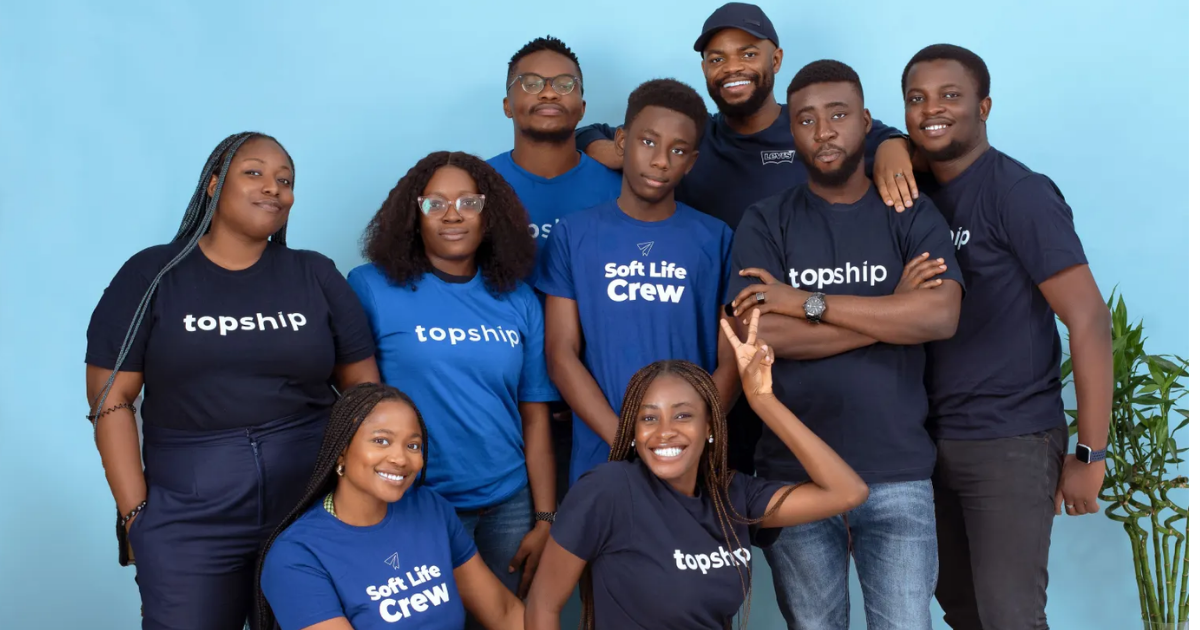Nigeria's Topship secures $2.5M from Flexport-led seed round to help merchants with intl shipping

Nigerian’s Topship, a logistic startup that recently graduated from the Y Combinator program has secured a $2.5 million seed round just months after rounding off the YC winter batch. Flexport-led the seed round with participation from the Y Combinator, Soma Capital, Starling Ventures, Olive Tree Capital, Capital X, and True Capital. The individual investors in the round include Immad Akhund, Mercury CEO, and Arash Ferdowsi, the co-founder of Dropbox.
Moses Enenwali and Junaid Babatunde founded Topship in 2020 during the surge of the Covid-19 pandemic when Enenwali noticed an increase in traders’’ needs for shipping parcels and cargo outside Nigeria but the startup went live in March 2021 after months of iteration. He had built relationships with these traders during his time with a logistics company, ACE Logistics, and e-commerce fulfillment provider, Sendbox.
“The world was shutting down, but there was this high demand for stuff, and demand for international shipping was going up simultaneously. So I was like, “this is interesting.” It wasn’t a business then as we just helped these people move stuff like a scrappy, little hustle,” Enenwali said in a chat with TechCrunch.
Around 60% of air cargo is carried in the belly hold of passenger planes worldwide, which is one reason why shipping air freight is easier to begin than shipping ocean cargo. For Enenwali, using this path made even more sense because passenger planes were half-empty for the majority of 2020.
Topship wants to create the easiest and stress-free way for African businesses to export and import parcels and cargo to their customers, suppliers, and distributors worldwide.
Enenwali gave reasons the world’s leading shipping company, Flaxport’s model might not work in Africa, “The reason why the Flexport model wouldn’t work here is it’s heavily invested in ocean freight and we don’t have enough ports on the continent. For example, in Nigeria, we have one function port, and for ocean freight to work, we need ports, railways, and roads for trucking. But we don’t have the roads, and we don’t have the railways,” said the CEO, giving reasons why Topship doesn’t involve itself with ocean cargo.
“It’s difficult to connect the continent with ocean freight. Flexport’s business model makes a lot of sense even with how they attack problems aggressively, and I love that. But for Africa, we need to tweak it to fit the use case here. So what we’ve seen is the way to connect the continent is via air. Every country and major city on the continent has a functioning airport, and airlines are flying to all those airports daily.”
Topship is designed for a diverse group of people. Topship is a borderline local and international shipping solution between digital freight and e-commerce fulfillment.
According to Enewali, Topship enables 1,500 businesses to ship cargo and packages from Nigeria to over 150 nations. Although it can assist Nigerian merchants in receiving parcel delivery in the opposite direction, it can only accept cargo deliveries from the United States, the United Kingdom, and China.
The startup’s revenue comes from selling shipping insurance and taking a margin on transactions. Enewali said the company is exploring other revenue streams, including trade financing and customs clearance charges. The startup claimed to have recorded ~50% month-on-month revenue growth since getting into YC this January.
“I think what YC does more than anything else is just pushing you to dive as deep as possible in understanding your users. Looking into the future, a lot of it’s coming from that ethos of the user being the most important piece of the puzzle, and we have to be obsessive about it. We’re taking all the learning and insights that we’ve learned from our users over the past five months or six months and building it into the product in a way that is merchants-focus.” Enenwali said.
Topship was invited by merchant organizations from Ghana, Tanzania, and Kenya late last year to assess the feasibility of launching in their local markets. Enewali hinted that the new investment will allow Topship to move forward and begin operations in the United States. In addition, he said, a portion of the money would go toward improving asset-light technologies and developing a proprietary global transportation infrastructure that would make imports and exports much faster and easier.
As a gesture of “support for the future of the booming e-commerce sector” in Nigeria, Topship has put aside some money in fashion design and retail grants worth $3,500 each to award new and established fashion firms.
